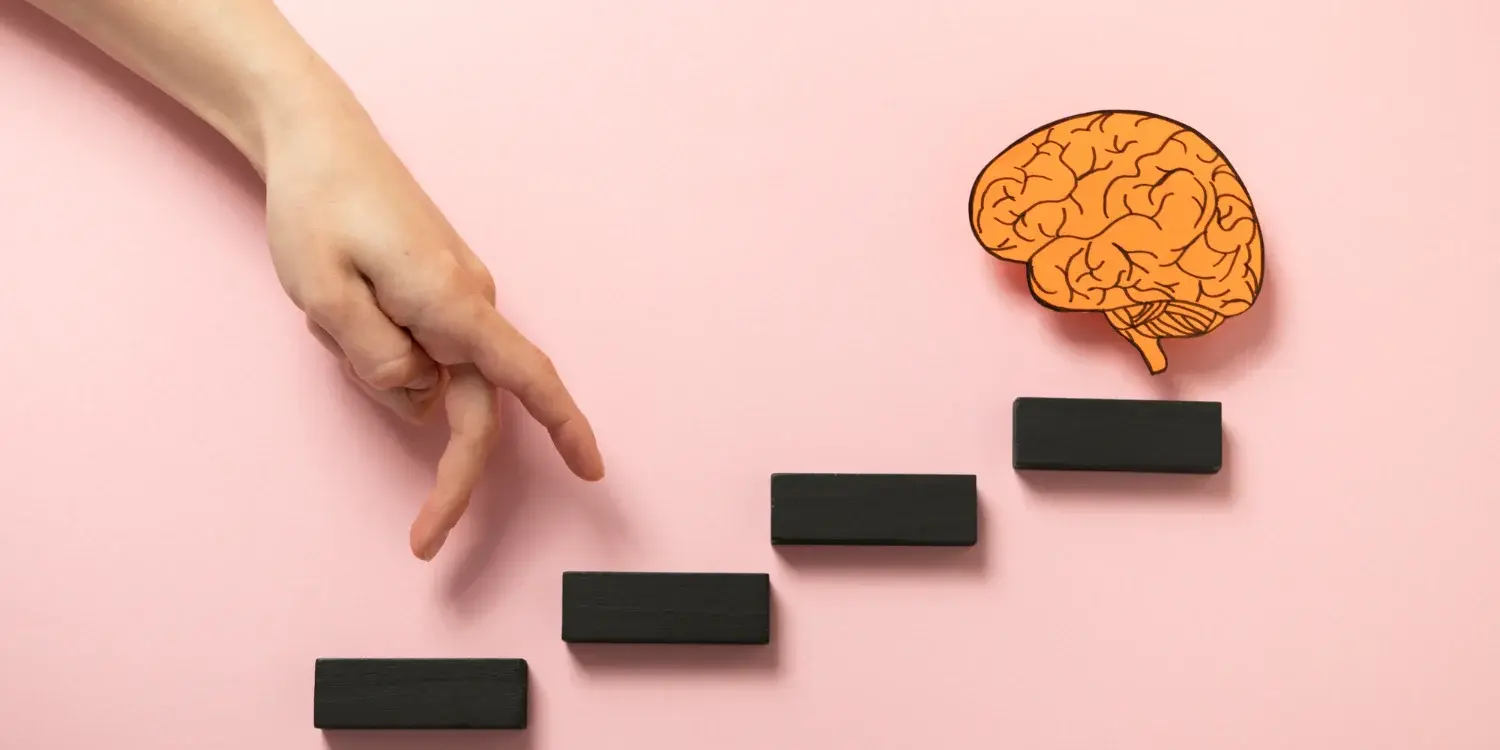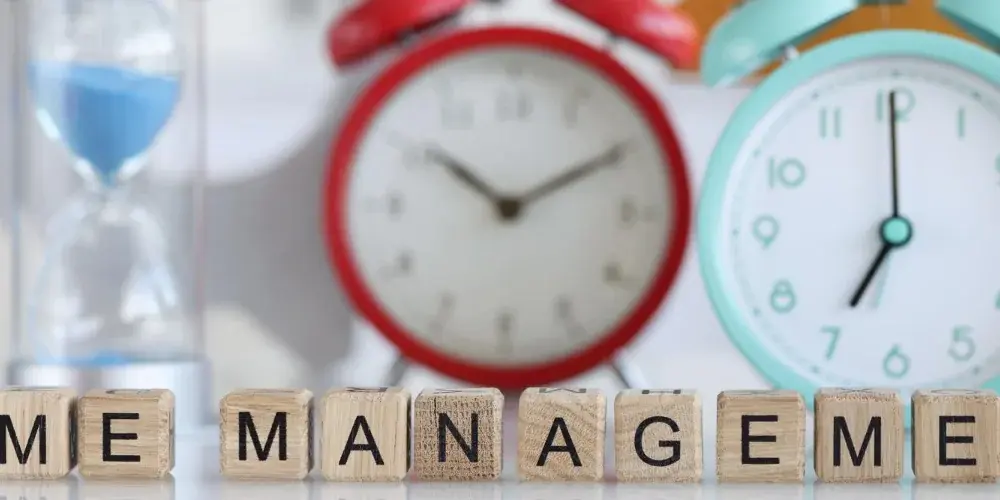12 Powerful Techniques to Improve Your Focus at Work
Have you ever spent hours at your desk, only to realize you've accomplished very little at the end of the day? You're not alone. The modern work environment is brimming with distractions—from buzzing notifications and endless emails to surprising spurts of procrastination. The challenge of improving focus has become one of the most sought-after productivity skills in today's busy professionals' toolkit.
Here's the good news: amidst these challenges, achieving stellar cognitive performance and optimizing your workflow is entirely possible. By harnessing simple yet powerful strategies, you can reduce distractions, sharpen your concentration, and navigate your daily tasks with clarity and efficiency. In this post, we'll explore 12 practical, science-backed techniques proven to boost mental clarity, streamline productivity, and help you reclaim your workday.
Ready to transform your working hours into a powerhouse of productive focus? Let's dive in.
1. Implement the Time-Blocking Technique
Do you often feel overwhelmed with too many things vying for your attention? The Time-Blocking Method can dramatically enhance your productivity by clearly assigning specific periods for tasks throughout your day. Simply divide your schedule into blocks, dedicating uninterrupted segments of time solely to one task or type of activity.
Career coach Cal Newport, author of the influential book "Deep Work," argues strongly in favor of time-blocking to achieve greater cognitive focus. For example, Elon Musk, CEO of SpaceX and Tesla, famously uses blocks of five-minute increments to manage his busy schedule effectively. While you don't need to get quite as granular as Musk, even blocking out 30–60 minutes at a time can significantly boost your ability to concentrate deeply.
Here's a practical way to start:
- Identify the most important tasks for the day.
- Allocate specific times to focus on each without interruptions.
2. Cultivate Mindfulness with Short Meditation Breaks
Believe me, I understand how hectic workdays can make meditation seem impossible. But here's the catch: research shows even brief mindfulness practices significantly enhance concentration. A 2018 study published in Psychological Science found that meditation lasting as little as ten minutes can improve cognitive performance and mitigate distracting thoughts.
For instance, taking short "mindfulness micro-breaks" can refresh your ability to process information clearly. Try apps like Calm or Headspace for guided mindfulness sessions during breaks. Set reminders to take short breath-awareness breaks, and you'll notice reduced stress coupled with improved cognitive sharpness after only a few sessions.
To easily implement this:
- Schedule short meditation breaks (5–10 minutes) throughout your day.
- Sit quietly, breathe deeply, and reset your mental state before resuming tasks.
3. Break Tasks into Manageable Chunks
Procrastination often springs from attempting overwhelming tasks. A powerful method to counter this issue is the practice of breaking large projects into smaller, easily manageable chunks. Chunking tasks into smaller activities provides clarity, motivates perseverance, and keeps you focused effectively.
Psychologist Tim Pychyl at Carleton University highlights task chunking as one of the best antidotes against procrastination. For example, writing a long report can be intimidating, but dividing it into tasks like research, drafting outlines, and editing creates a structured approach and boosts your progress incrementally.
Actionable steps to chunk tasks:
- Clearly define sub-tasks.
- Assign realistic time to achieve micro-goals.
4. Optimize Your Environment for Deep Work
Your workspace significantly impacts your mental performance. Creating a dedicated environment tailored for concentration reduces distractions and fosters cognitive efficiency. Declutter your workspace, limit interruptions (mute notifications), and be purposeful about the tools you keep accessible at your desk.
Productivity expert James Clear highlights "environment optimization" in his book "Atomic Habits," suggesting our workspaces strongly influence our habits and performance. Consider this relatable scenario: noticing constant social media notifications on your phone tempts distraction. Simply removing your phone from sight or turning notifications off dramatically amplifies your focus.
Consider these quick hacks:
- Remove unnecessary items from your desk.
- Create a dedicated space specifically designed to foster deep concentration.
5. Use the Pomodoro Technique for Short, Powerful Sprints
Invest time in adopting the highly effective Pomodoro Technique, developed by Francesco Cirillo in the 1980s. Simple yet extremely effective at enhancing focus, it involves working intently for 25 minutes followed by 5-minute breaks. After four cycles, a longer 20–30-minute break is recommended, preserving your attention span and energy throughout your working day.
Have you tried plowing through tasks continuously until burnout hits? Pomodoro resolves this by keeping your brain fresh with consistent pauses. For instance, a graphic designer might apply Pomodoro bursts when juggling multiple projects, tackling each task methodically without becoming mentally exhausted quickly.
To effectively use Pomodoro:
- Set a timer for 25 minutes of intense, uninterrupted work.
- Take short breaks to relax swiftly and return refreshed.
6. Leverage Energy Peak Times to Increase Focus
Harnessing your natural biological rhythms, often termed ultradian rhythms, is fundamental for achieving optimal cognitive performance. Noticing when you feel energetic and alert throughout typical working hours helps to schedule challenging tasks effectively during your prime cognitive periods.
In his bestseller "When," Daniel Pink emphasizes matching tasks to your daily energy rhythms significantly boosts productivity. Let's say you generally feel sharpest around mid-morning. Plan complicated analytical tasks during those time slots and leave less intense activities, like emails or administrative tasks, for when energy naturally dips.
To put this into action:
- Track your personal energy peaks and troughs over a week.
- Adjust your task schedule around times of optimal cognitive clarity.
7. Adopt the Two-Minute Rule for Quick Tasks
David Allen, productivity consultant and author of "Getting Things Done," promotes the Two-Minute Rule: if a task takes less than two minutes, complete it immediately rather than postponing it. This simple rule significantly reduces mental clutter and reserves your focus for more significant tasks.
Imagine getting a short email asking for simple feedback. Rather than postponing and letting it linger mentally unresolved, quickly addressing it improves mental reserves and clears additional internal distractions that sabotage your concentration later.
How you can adopt this quickly:
- Identify tasks that take under two minutes.
- Immediately tackle them to clear headspace and maintain clarity.
8. Prioritize Sleep Quality for Improved Cognitive Function
Let's face it, sleep might seem like an obvious solution, yet it's frequently neglected. Sleep profoundly impacts your cognitive capabilities, including attention, memory retention, and problem-solving. According to neuroscientist Matthew Walker in "Why We Sleep," lack of sleep significantly harms cognitive performance and the ability to concentrate effectively.
Ensuring adequate, high-quality sleep is non-negotiable to sustain productive focus during your day. If you've experienced blurred thinking, forgetfulness, and careless mistakes after poor sleep, you're keenly aware of its importance.
Effective strategies include:
- Maintain a steady sleep schedule (7–9 hours nightly).
- Limit screen exposure an hour before bedtime.
Conclusion
Improving your productivity and sharpening focus at work doesn't have to be a complex puzzle. Simple yet powerful methods like time-blocking, mindfulness breaks, environment optimization, and prioritizing restorative sleep form a solid foundation for enhanced cognitive performance.
Of course, applying these techniques consistently becomes significantly easier with effective digital tools to support you. For an intuitive way to track your habits, manage task chunking, and integrate efficient productivity methods seamlessly into your workflow, explore the powerful productivity app.
#FocusTips #ProductivityHacks #DeepWork #CognitivePerformance #ProductivityImprovement
You May Also Like
These Related Stories

From Pajamas to Productivity: Morning Routines for Remote Work Success

How to Boost Focus & Cognitive Performance: 12 Proven Strategies

No Comments Yet
Let us know what you think